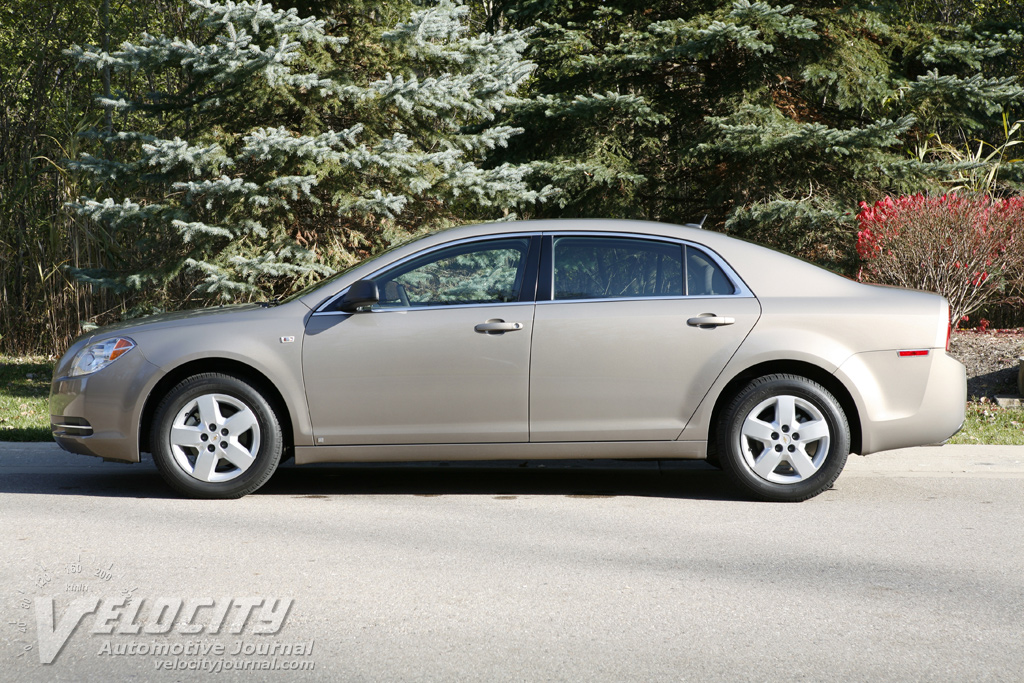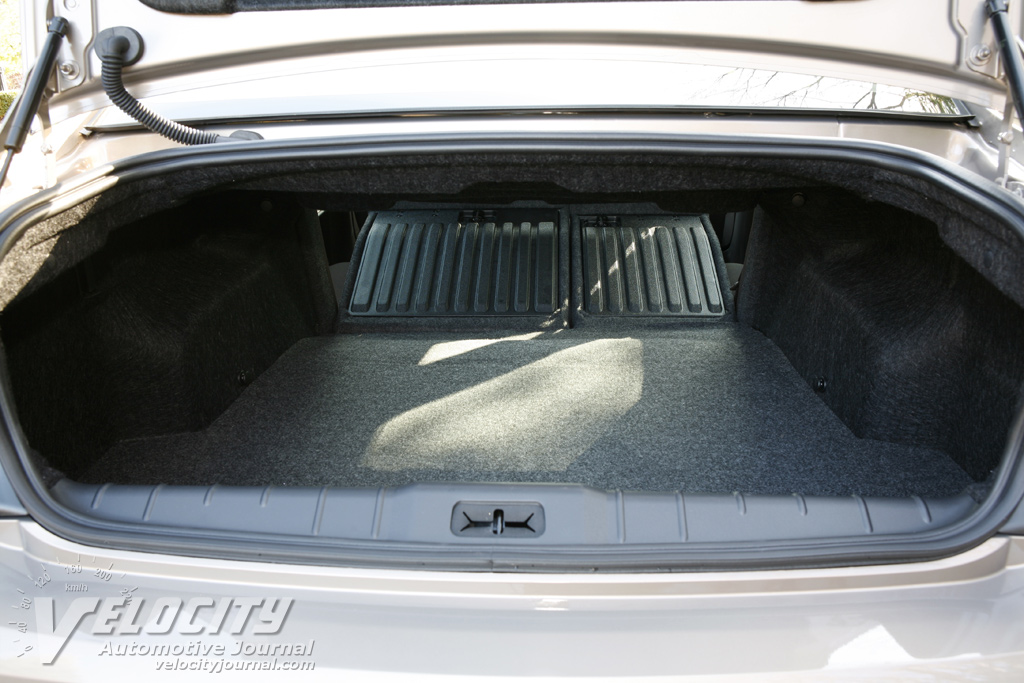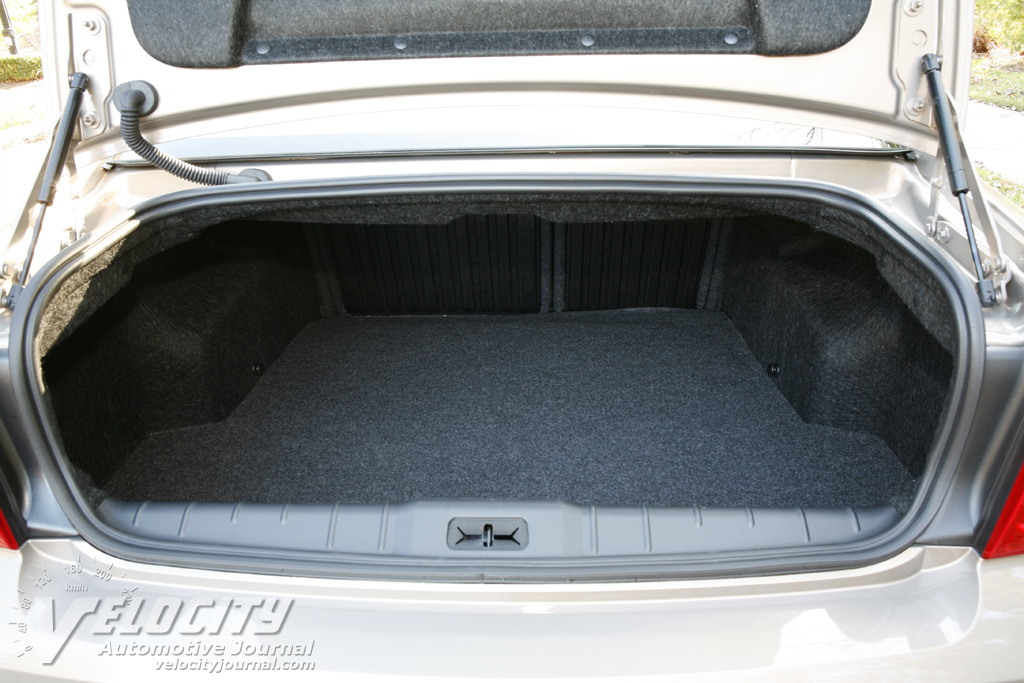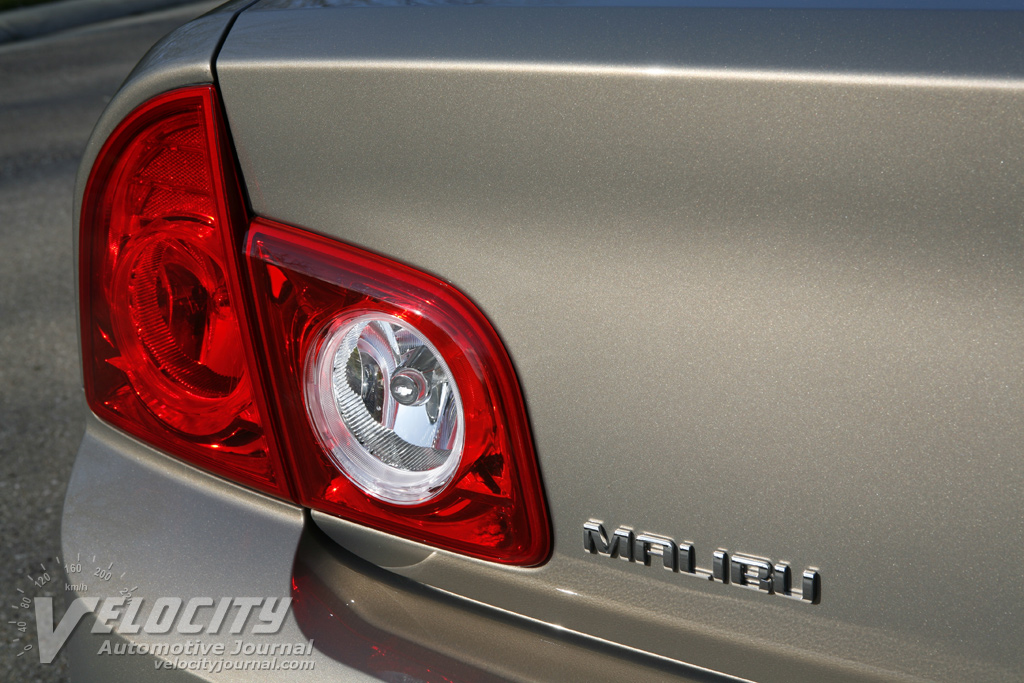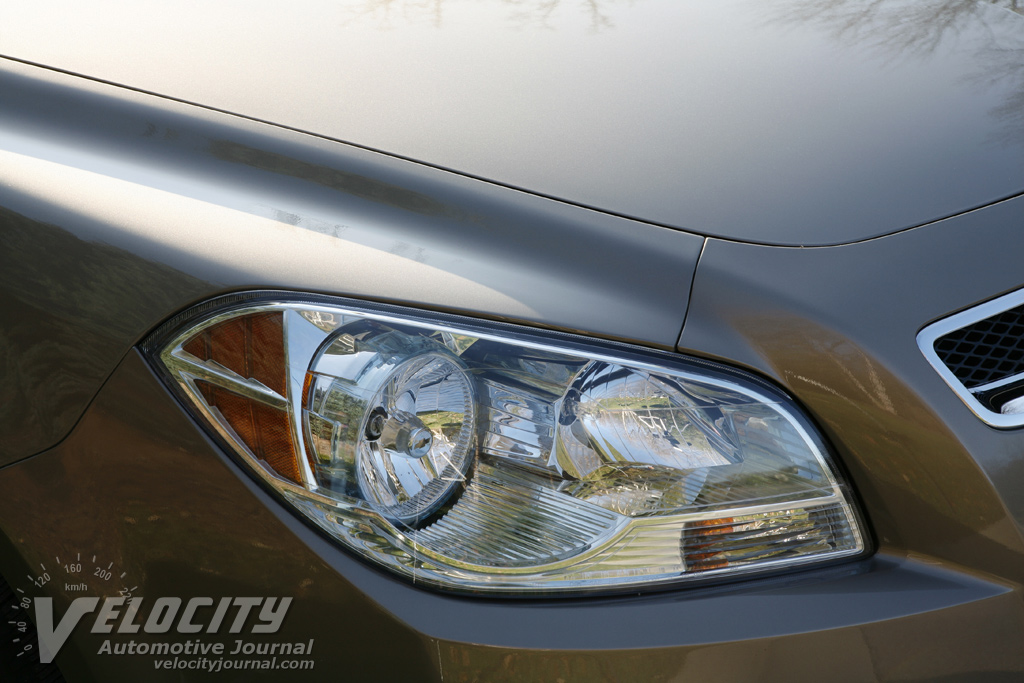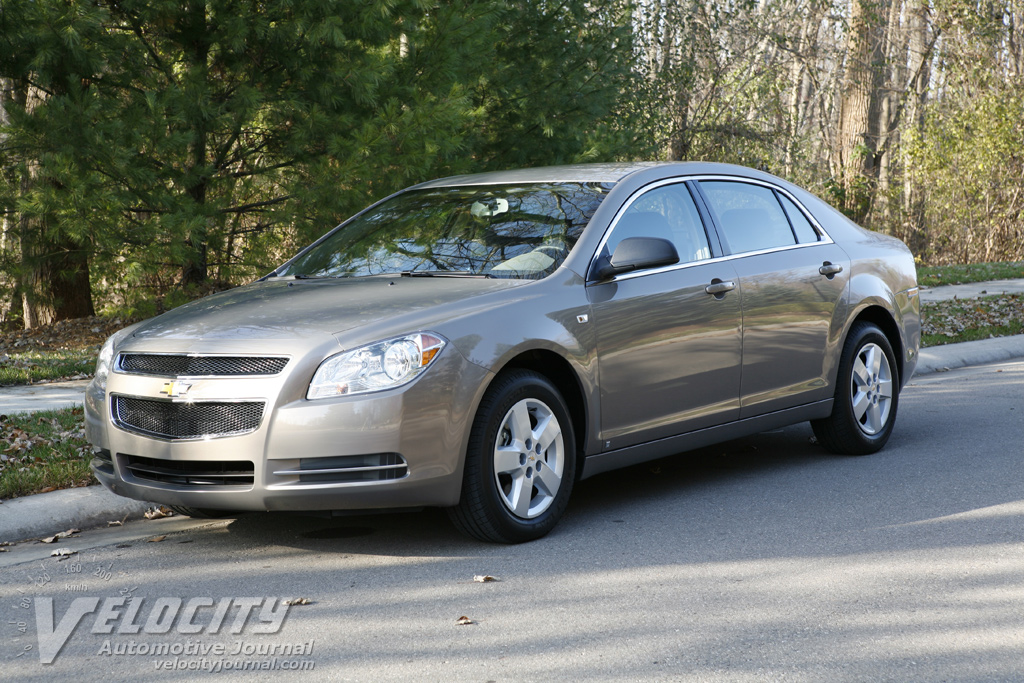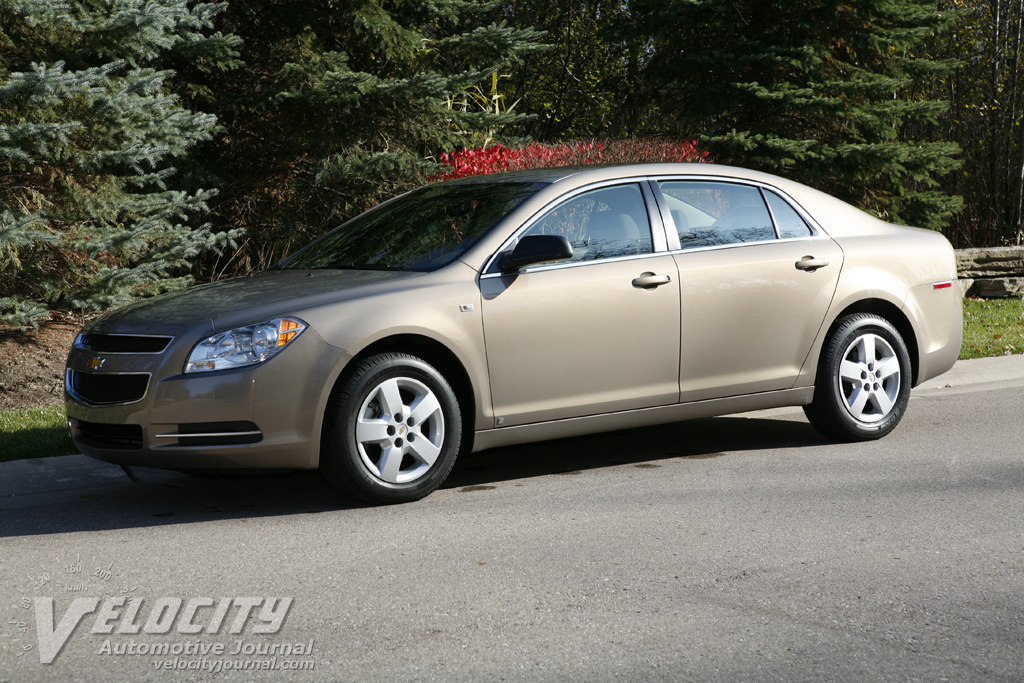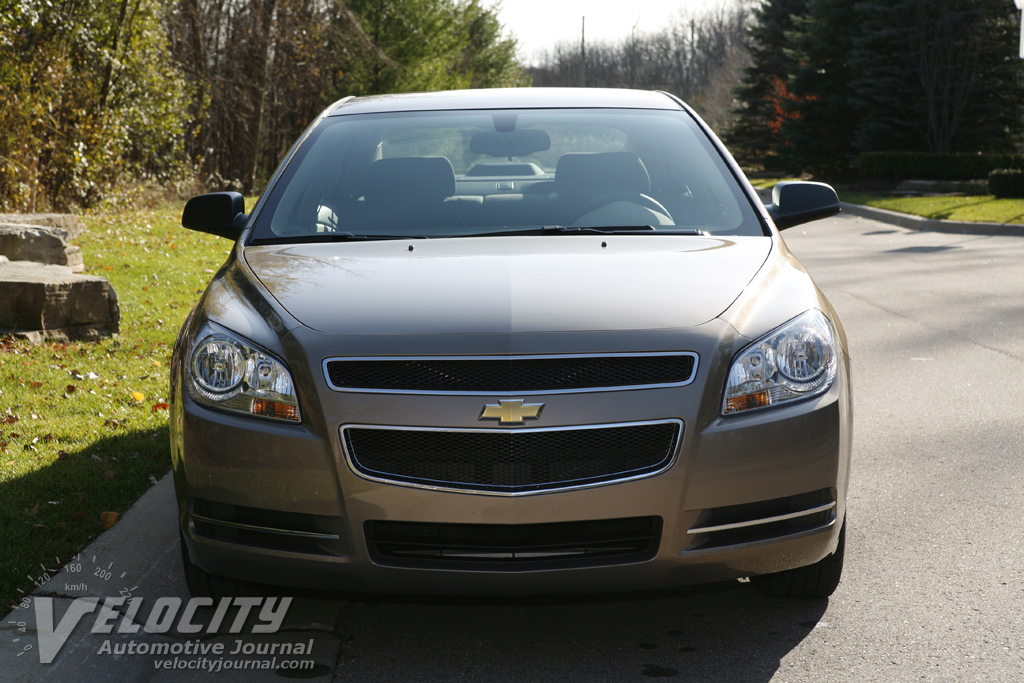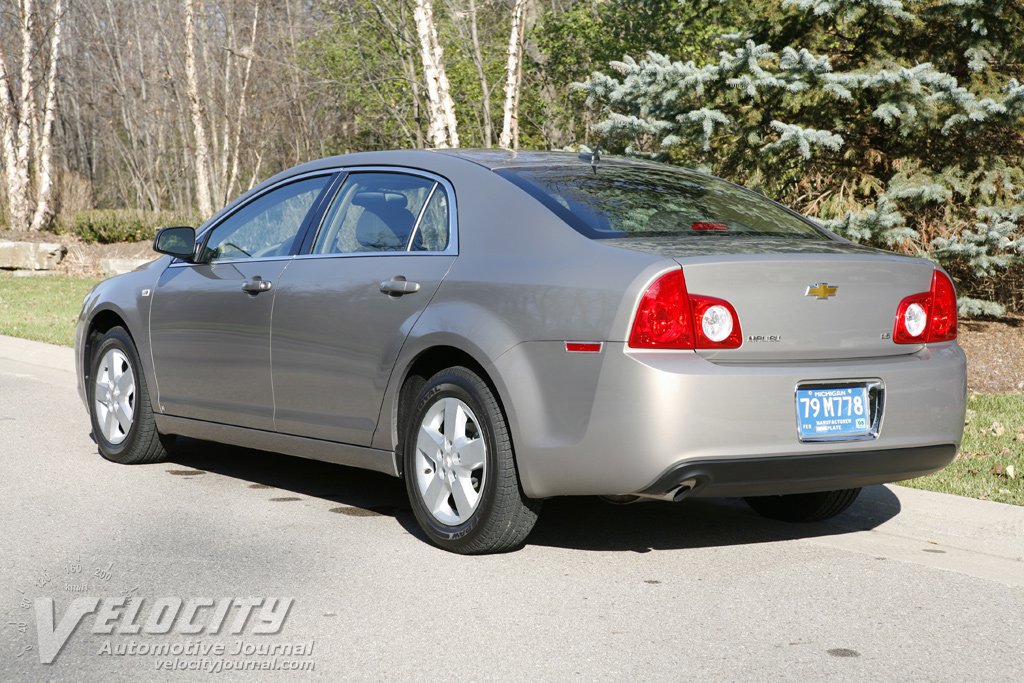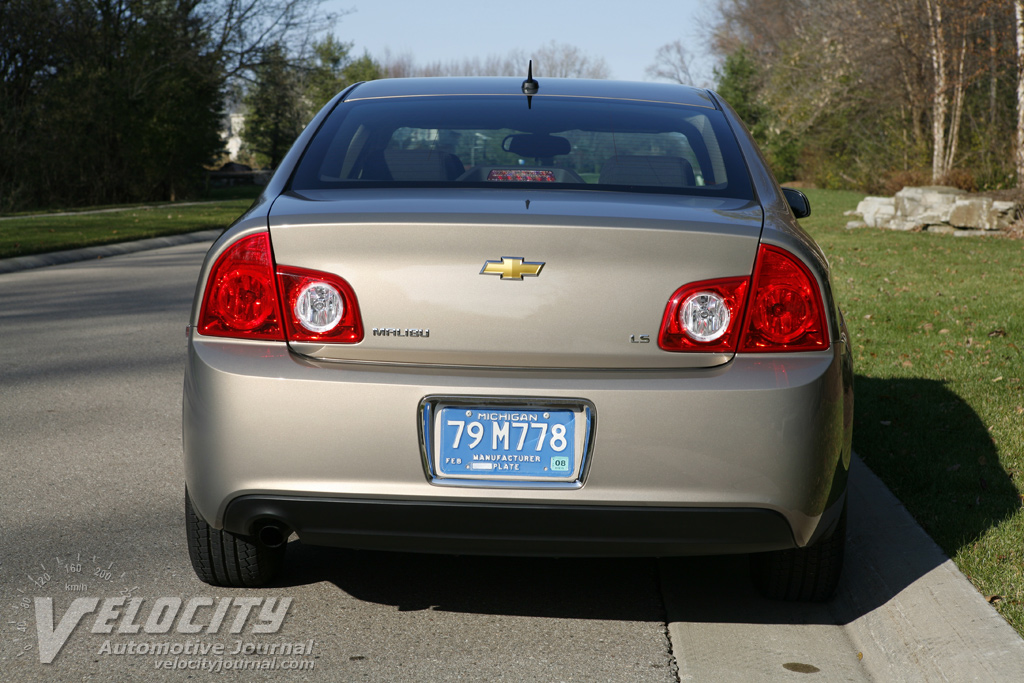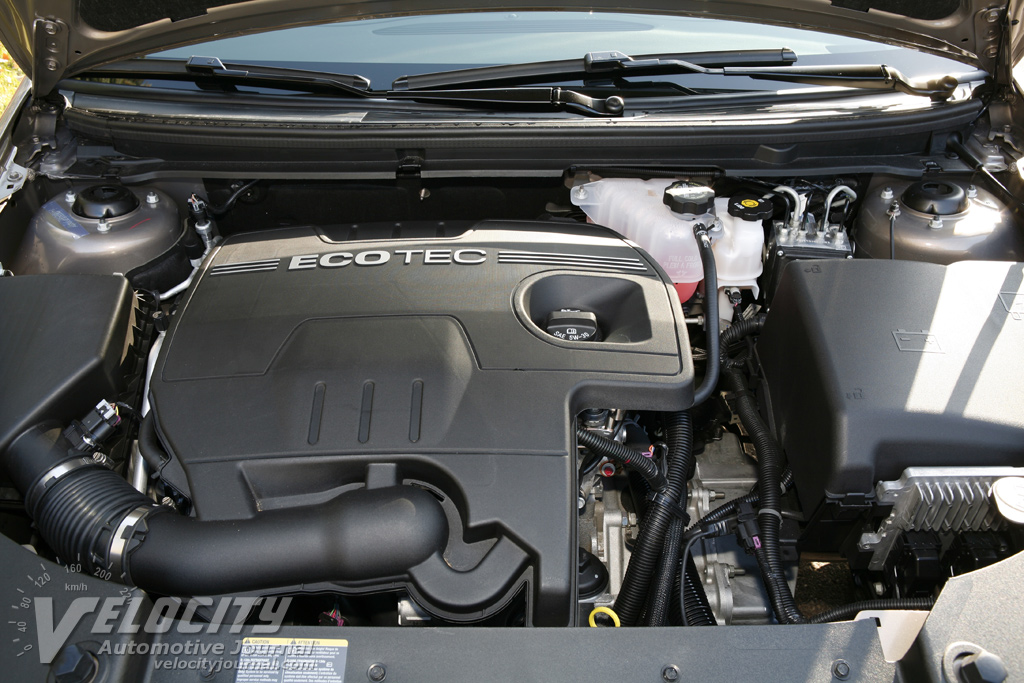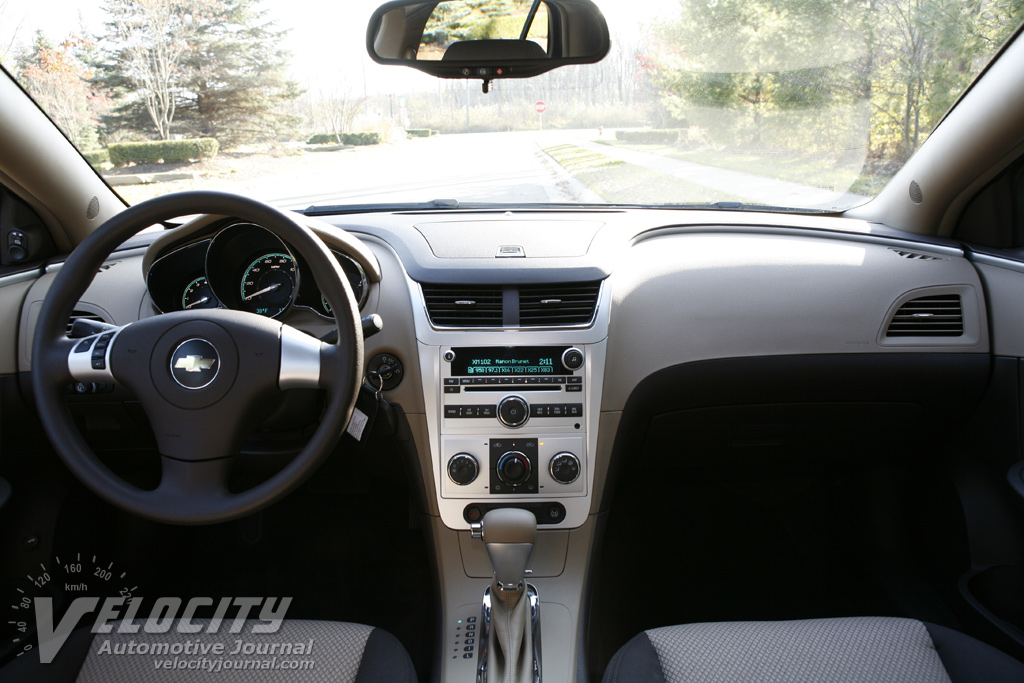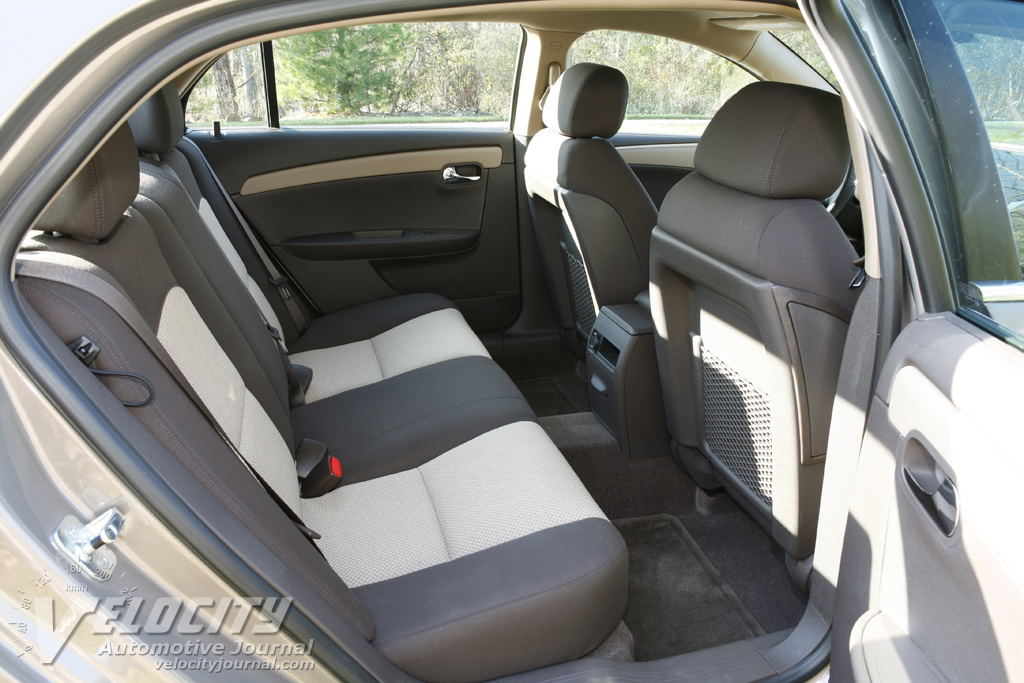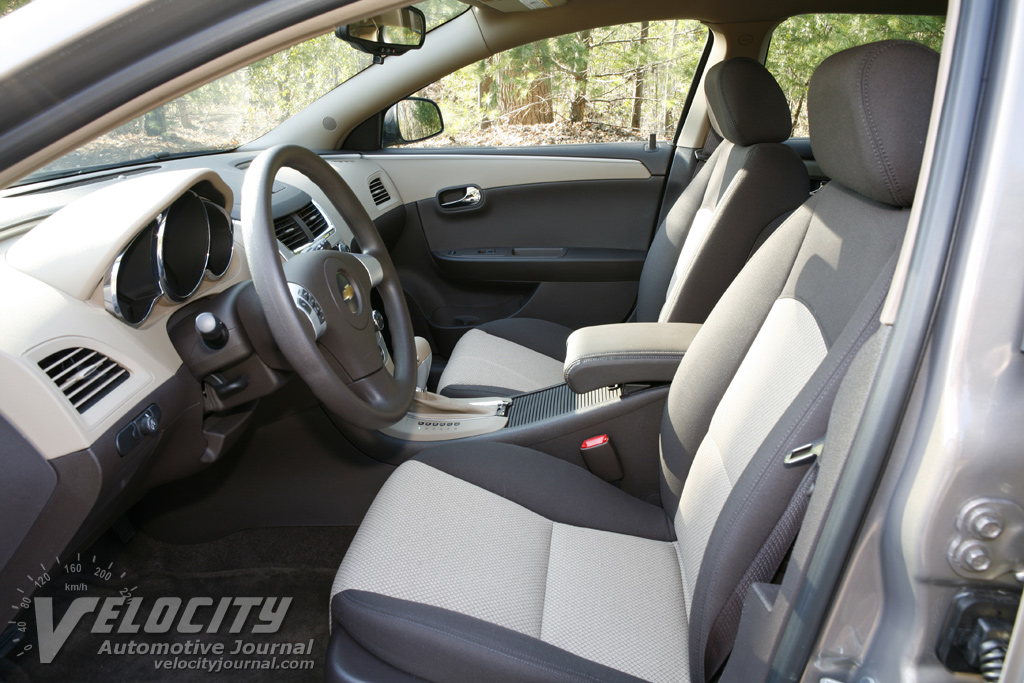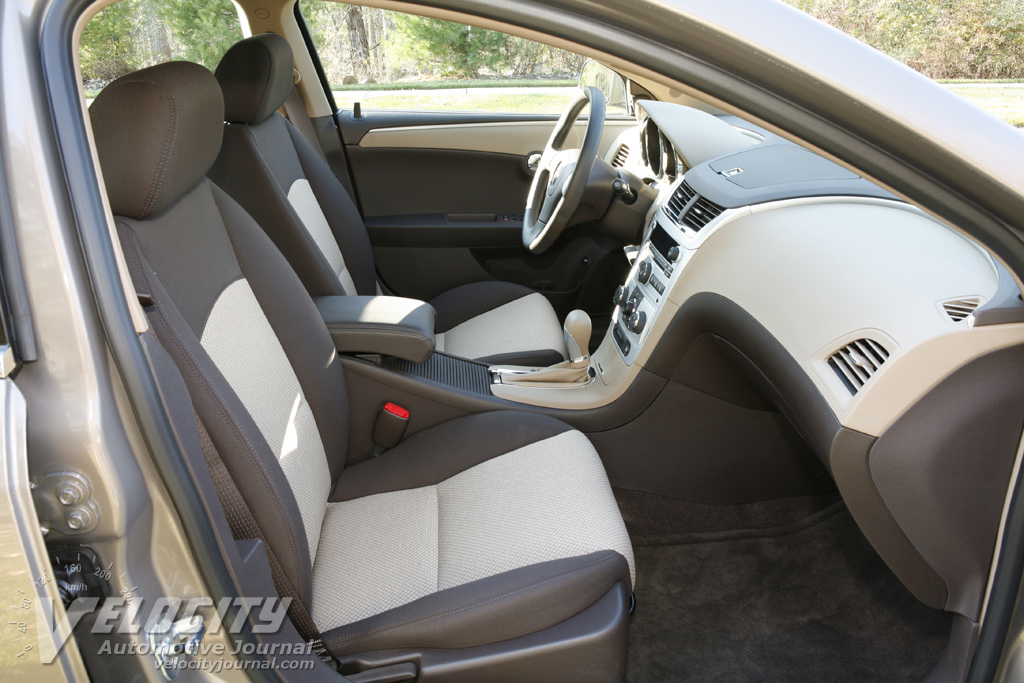2008 Chevrolet Malibu LS
11/20/2007
Shahed Hussain
For 2008, Chevrolet completely redesigned the Malibu midsize sedan to make it more competitive with the Toyota Camry and Honda Accord. While previous Malibus had neither the material quality nor the powertrain sophistication of its Japanese rivals, the 2008 model matches its competition in nearly every category. This is a refreshing change for Chevrolet, which has typically lagged behind the segment leaders in design and driveline technology.
We drove a base Malibu LS (1LS package), equipped with the standard 2.4L inline-4 mated to a 4-speed automatic. GM plans to offer the 6-speed automatic as an option later, although the exact introduction date isn't available yet. The sticker price starts at a reasonable $19,425, with a set of $80 floor mats as the only option. Add $650 destination charge for a total of only $20,075. Standard equipment includes side airbags, 4-wheel disc brakes, ABS, traction control, air conditioning, power window/locks/mirrors, keyless entry, and cruise control. Given our preferences, we would move up to the Malibu LT with the 2LT package ($22,635), which adds remote start, leather-wrapped steering wheel and shift knob, heated front seats, 6-way power driver's seat, 17-inch alloy wheels, plus some other desirable interior features. Nonetheless, as an entry level model, the Malibu LS has most of the amenities and equipment that the majority of customers will consider essential.
Chevy has trumpeted its efforts to improve interior materials and design, and the Malibu is the first to show the results. While the previous Malibu was a study in monochromatic hard plastics and bland textures, its replacement is in a completely different league: most interior surfaces are soft and pleasing to the touch. Our test vehicle had a two-tone color scheme GM calls "cocoa/cashmere"; a "titanium custom cloth" interior is an alternative available with some exterior colors. While we weren't particularly fond of the multi-hued brown interior, we commend GM for offering a variety of color schemes, although some combinations are not available on all models.
Other interior trim enhancements include: a silver center stack bezel, chrome shifter surround, chrome-rimmed gauges, and metal doorsill scuff plates. Blue LED illumination on the center console and front door handles combine style and function. An aluminum-trimmed 3-spoke steering wheel integrates controls for cruise control and the trip computer. Three large round knobs and clearly marked buttons control the HVAC system; while the audio system has a central knob with buttons symmetrically arranged on each side. A traction control disable button sits just below the HVAC controls. As expected in a family sedan, the Malibu includes more cupholders than passengers: a total of 6 cupholders are distributed between the front and rear seats. Sound quality from the standard AM/FM/CD/XM stereo is above average: tight bass, clear treble and low distortion at high volume should please most customers. GM's OnStar assistance system is also included, with one year free service.
The Malibu's standard bucket seats are covered in a slightly slippery two-toned fabric, although the bolsters keep the driver in place. Overall front seat comfort and support is above average; 4-way manual controls with power height adjustments should allow most drivers to find the right seating position. The front passenger gets the basic manual fore/aft and rake adjustments. Where the Malibu shines is in its outstanding rear seat legroom, but the overly stiff seatbacks feel as stiff as a board. The culprit appears to be the hard plastic backing behind the folding seats, which compromises passenger comfort.
GM 4-cylinder engines have rarely matched similar powerplants from Asian or European manufacturers in refinement, but this 2.4L Ecotec is an outstanding exception. Noise levels are muted even at full throttle; more importantly, this DOHC Ecotec sounds expensive, with none of the annoying induction noise or vibration that plagued previous GM inline-4 engines. In our opinion, the Malibu matches or exceeds most of its competition in smoothness and refinement.
With 169-bhp @ 6400 RPM and 160 lb.-ft. @ 4500 RPM, the Malibu offers competitive power and torque. As the peak torque rating implies, low RPM throttle response is slightly sluggish, especially when coupled to the tall first gear ratio of the 4-speed automatic. Above 3,000 RPM the 2.4L seems more energetic, especially as the tachometer approaches the torque peak. Unfortunately, without the benefit of the upcoming 6-speed automatic, this powerplant just doesn't have the low end torque to move the Malibu with much enthusiasm.
As noted earlier, current 4-cylinder Malibus are equipped with a 4-speed automatic, although a 6-speed unit will be available later. The Hydra-Matic 4T45 unit shifts unobtrusively, but has a tall 2.95:1 first gear ratio, while the remaining three gears are spread apart too far to take full advantage of the engine torque band. The transmission shift lever has detents marked "D", "I", and "L" on the center console. Select "I" to keep the transmission in 2nd or 3rd gear, while "L" confines it to 1st gear only. Although not as flexible as the manual mode available on some other midsize sedans, the Malibu offers enough transmission control to please less demanding customers, who more than likely will leave the automatic in "D" most of the time. Nonetheless, we recommend that performance-oriented buyers wait until the 6-speed automatic is available for the 2.4L engine, or consider the V-6/6-speed automatic combination available in the LT and LTZ.
All Malibus are equipped with 4-wheel disc brakes: 11.65" diameter (front)/10.65" diameter (rear). ABS and traction control are standard; LT and LTZ models get StabiliTrak electronic stability control. Despite the all-disc brake setup, pedal feel on the test model was surprisingly mushy, although the brakes are certainly powerful enough to inspire confidence. Our Malibu LS had 215/60R16 M+S rated Uniroyal Tigerpaw tires on 16-inch steel wheels and wheel covers. Malibu LT and LTZ models are available with 17-inch and 18-inch alloy wheels, respectively.
On the highway, the Malibu cruises quietly, with minimal engine or wind noise at up to 85 MPH, although some tire noise is noticeable on concrete surfaced roads. Suspension tuning is tailored for a compliant ride, as the Malibu absorbs bumps and potholes with no fuss. Fuel consumption for the 2.4L/4-speed automatic combination is a frugal 22/30 (city/hwy.) according to the EPA. Our test vehicle (with less than 2,000 miles on the odometer) averaged 24-25 MPG cruising at 70-80 MPH.
For a mainstream family sedan, Chevrolet engineers found the just the right balance of steering feedback vs. isolation: the Malibu's steering has enough feel to communicate road textures, but without undue kickback or vibration to cause fatigue. Malibus equipped with the 2.4L engine get electrically-assisted power steering, which we found indistinguishable from a conventional hydraulic system. Although understeer in normal driving is minimal, we didn't really push the chassis very hard. GM also managed to damp out torque steer to nearly undetectable levels. The Malibu LS doesn't aspire to be a sport sedan, yet it won't bore you with an uninvolving driving experience either.
Chevy's bold marketing campaign for the Malibu is accurate: it truly is a car you can't ignore. The new Malibu now deserves to be mentioned as a viable alternative to the Accord and Camry. Within the GM product line, the Pontiac G6 and Saturn Aura are also based on the same platform. Both corporate siblings are worth considering: the G6 is intended to be a sporty sedan, while the Aura is somewhat more luxurious than the Malibu. We do recommend that potential customers considering a 4-cylinder Malibu wait until the 6-speed automatic is available, as the standard 2.4L/4-speed automatic combination feels sluggish compared to 4-cylinder powertrains in other midsize sedans. However, we suspect that many buyers will be drawn to the Malibu's combination of attractive styling, spacious interior, and overall refinement, all at a very compelling price.

